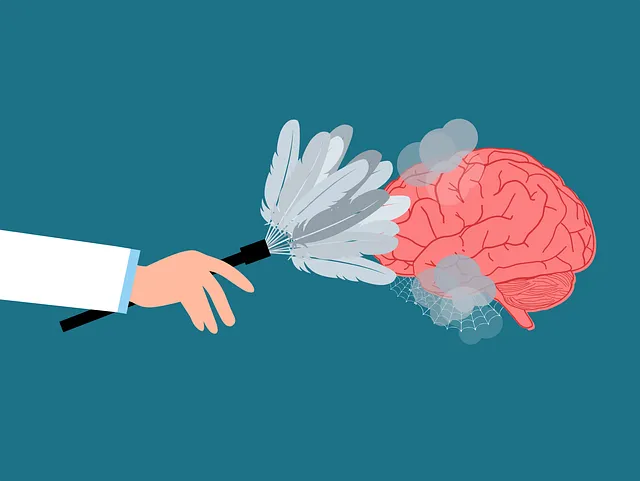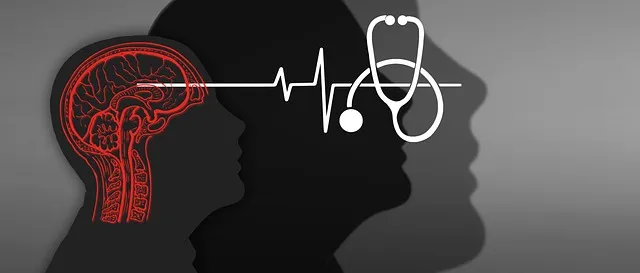The media plays a pivotal role in shaping public perception of mental health, with positive portrayals encouraging help-seeking behaviors and fostering compassion. Kaiser Permanente Denver has a unique opportunity to lead efforts in improving mental illness representation through its comprehensive mental health services. By collaborating with media outlets, implementing empathy-building strategies, and involving individuals with lived experiences, they can challenge stereotypes and promote diverse narratives about mental well-being. This proactive approach benefits not only the Denver community but also sets a standard for similar initiatives nationwide, ensuring accurate and empathetic media representation of mental health issues.
Mental illness representation in media significantly impacts public understanding of mental health. This article explores how media can either perpetuate stigma or foster awareness, with a particular focus on Kaiser Permanente Denver’s role as a leader in challenging these narratives. We examine strategies for accurate and compassionate portrayal, emphasizing the importance of diverse representation in media and healthcare. Additionally, we discuss how Kaiser Permanente offers comprehensive mental health services tailored to the unique needs of Denver residents.
- Understanding the Impact of Media Portrayal on Mental Health Awareness
- Addressing the Gap: How Kaiser Permanente Denver Can Lead the Charge
- Strategies for Accurate and Compassionate Mental Illness Representation in Media and Healthcare
Understanding the Impact of Media Portrayal on Mental Health Awareness

The media plays a significant role in shaping public perception about mental health issues. The way mental illness is portrayed in movies, TV shows, and news articles can either promote understanding and reduce stigma or perpetuate stereotypes and misconceptions. Positive representations in media can encourage folks to seek help and open conversations about mental well-being. For instance, Kaiser Permanente offers various mental health services in Denver, emphasizing their commitment to community support.
By incorporating Empathy Building Strategies, Mindfulness Meditation, and Social Skills Training into narratives, media can foster a deeper understanding of these conditions. Such strategies help viewers connect with individuals struggling with mental health challenges, promoting compassion and reducing judgment. This shift in representation is crucial in encouraging early intervention, treatment-seeking behaviors, and overall improvements in mental health outcomes.
Addressing the Gap: How Kaiser Permanente Denver Can Lead the Charge

Kaiser Permanente Denver has an opportunity to lead the charge in addressing the gap of accurate mental illness representation in media. By recognizing the power of their platform, they can foster a more inclusive and empathetic society. The organization already provides comprehensive mental health services in Denver, including crisis intervention guidance, self-care routine development for better mental health, and empathy building strategies. Building on these strengths, Kaiser Permanente can collaborate with media outlets to ensure stories about mental illness are told responsibly and accurately.
Through initiatives like educational workshops, content reviews, and partnerships with mental health experts, Kaiser Permanente Denver can set a new standard in media representation. By actively challenging stereotypes and promoting diverse narratives, they can contribute to a national conversation that prioritizes mental well-being for all. This proactive approach will not only benefit the community in Denver but also inspire similar efforts across the country.
Strategies for Accurate and Compassionate Mental Illness Representation in Media and Healthcare

Media and healthcare professionals play a pivotal role in shaping public understanding of mental illness. To foster accurate and compassionate representation, several strategies can be employed. Firstly, Kaiser Permanente and similar organizations offer mental health services Denver residents rely on, emphasizing the importance of accessible resources. By involving individuals with lived experiences as advisors or consultants, media creators can ensure authentic portrayal. This practice promotes empathy among viewers and counters stigmatization.
Additionally, providing comprehensive Crisis Intervention Guidance within media platforms can offer timely support for those struggling with mental health challenges. Encouraging open dialogue about self-care practices and promoting professional help through embedded resources empowers individuals to seek assistance. Such initiatives contribute to a more supportive societal narrative surrounding mental illness, mirroring the services available from organizations like Kaiser Permanente in Denver.
Media plays a pivotal role in shaping public understanding of mental illness. However, inaccurate or stereotypical portrayals can hinder progress towards destigmatization and adequate support for those affected. To bridge this gap, organizations like Kaiser Permanente Denver are leading the charge with initiatives focused on enhancing media representation and promoting mental health awareness. By implementing strategies for accurate, compassionate, and diverse mental illness depiction, we can foster a more inclusive society that recognizes and supports individuals’ psychological well-being, reflecting the comprehensive mental health services offered by Kaiser Permanente in Denver.






